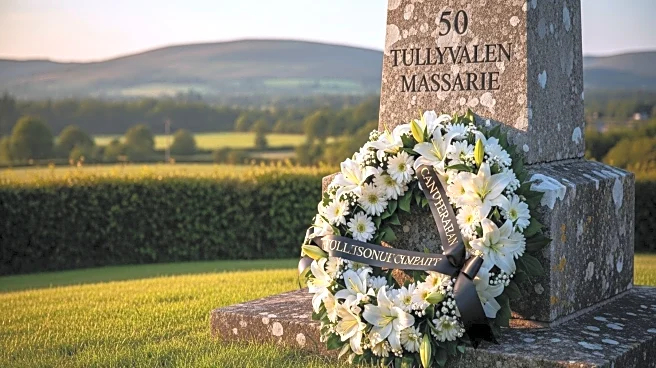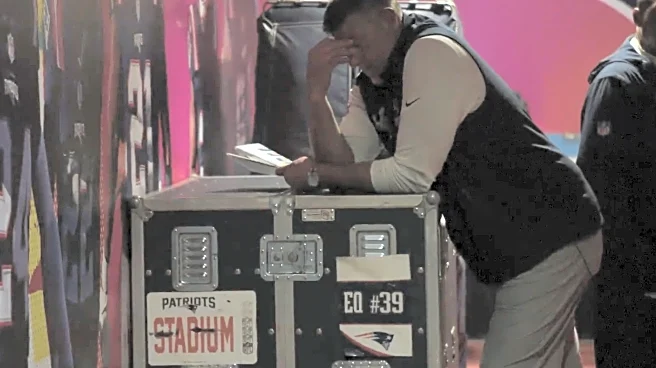What's Happening?
Alasdair Cooke, the grandson of James McKee, who was killed in the Tullyvallen massacre, is actively working to keep the memory of the victims alive. The massacre occurred in September 1975 when IRA gunmen attacked an Orange Order lodge meeting in County Armagh, resulting in the deaths of five members, including Cooke's grandfather and uncle. The attack was part of the broader violence during the Troubles in Northern Ireland. Cooke, now the most senior officer in the lodge, regularly sits in the same chair where his grandfather was killed, ensuring the event is not forgotten. The 50th anniversary of the massacre has been marked with memorial events, highlighting the continued impact on the community.
Why It's Important?
The Tullyvallen massacre is a significant historical event that underscores the violent legacy of the Troubles in Northern Ireland. Remembering such events is crucial for healing and reconciliation within affected communities. The memorial activities led by Alasdair Cooke serve as a reminder of the resilience and continuity of the Orange Order lodge despite attempts to destroy it. This commemoration also highlights the ongoing need for addressing the legacy of the Troubles, as new frameworks for dealing with past violence are being discussed. The event's remembrance is vital for ensuring that the victims are honored and that society learns from past conflicts.
What's Next?
The 50th anniversary has prompted discussions on how to address the legacy of the Troubles, with new frameworks being announced. These frameworks aim to provide support to victims and survivors of terrorist attacks, ensuring their stories are preserved and their needs are met. The continued memorial events and community gatherings at Tullyvallen hall will likely foster ongoing dialogue about reconciliation and healing. Stakeholders, including political leaders and community groups, may engage in further discussions to ensure that the lessons from the Troubles are integrated into current peace-building efforts.
Beyond the Headlines
The Tullyvallen massacre and its commemoration raise broader questions about how societies deal with historical violence and trauma. The ethical responsibility to remember and honor victims while fostering reconciliation is a complex challenge. The event also highlights the cultural significance of the Orange Order in Northern Ireland and its role in community identity. Long-term shifts in how such historical events are remembered could influence future peace-building and reconciliation efforts, emphasizing the importance of inclusive narratives that acknowledge all affected parties.










